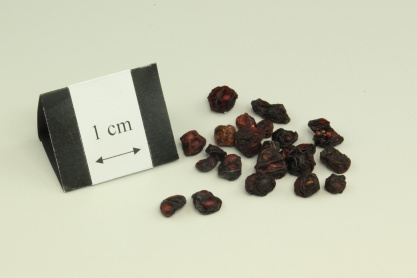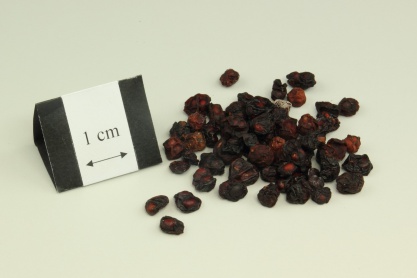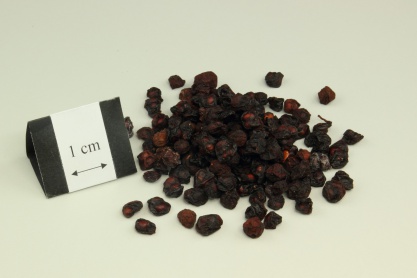五味子
- ENG
- Chinese Magnoliavine Fruit
- LATIN
- Schisandrae Chinensis Fructus
| Medicinal Group | Astringent medicinal |
|---|---|
| Source | Dried ripe fruit of Schisandra chinensis (Turcz.) Baill. (Fam. Magnoliaceae) |
| Nature and Flavors | sour, sweet; warm |
| Meridian Affinity | Lung, Heart, Kidney |
| Actions | To astringe, replenisg qi, engender fluid, tonify the kidney, and induce sedation |
Family
Magnoliaceae
Part used
Fruit
Indications
Chronic cough and dyspnea; nocturnal emission, spermatorrhea; enuresis, frequent urination; protracted diarrhea; spontaneous sweating, night sweating; impairment of body fluids with thirst, shortness of breath and feeble pulse; diabetes and wasting-thirst caused by internal heat; palpitation and insomnia
Cautions
No Data.
Report on adverse effect
Minor adverse effects such as heartburn, acid indigestion, stomach pain, anorexia, allergic skin reactions and urticaria have been reported [1]
Reference
McGuffi n M et al., eds. Botanical safety handbook. Boca Raton, FL, CRC Press, 1997.












